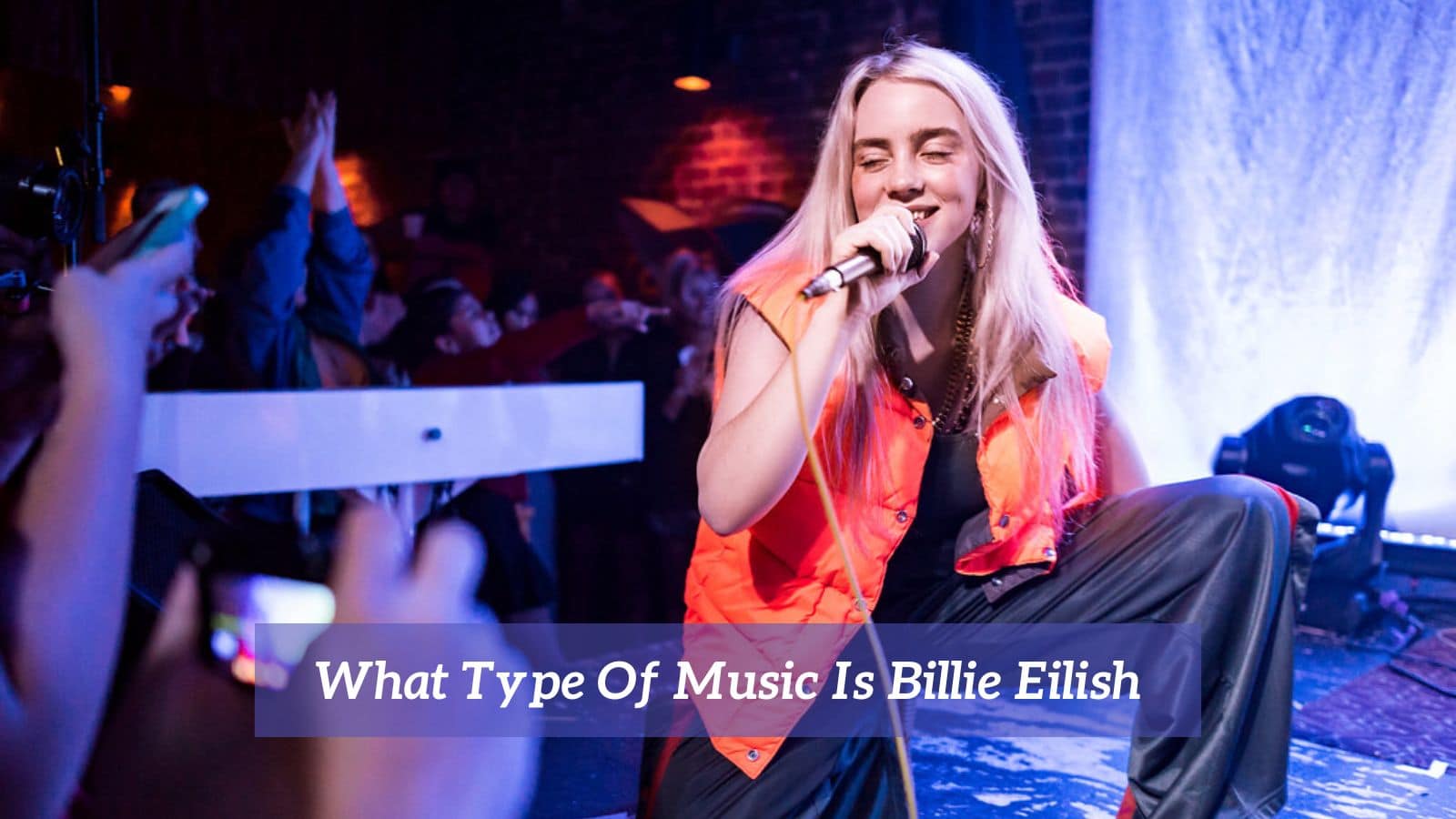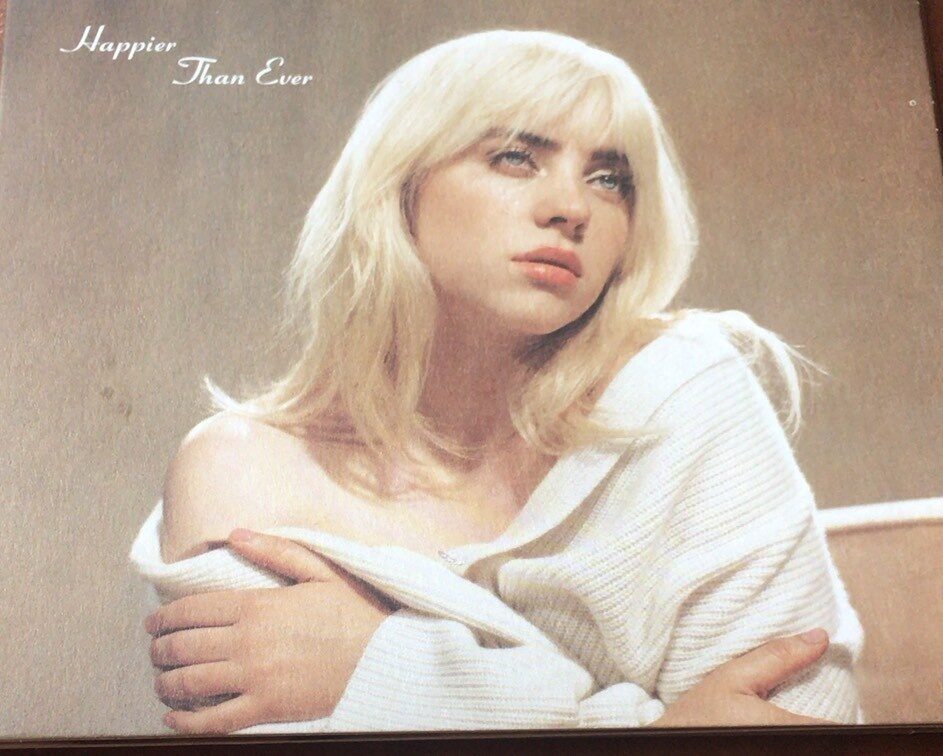
Billie Eilish Pirate Baird O’Connell (born December 18, 2001) is a singer-songwriter from the United States. Her first big hit, Ocean Eyes, was written and produced by her brother Finneas O’Connell.
Billie and her brother regularly collaborate on music and live acts, and Ocean Eyes rocketed her into public recognition in 2015.
Trying to pin Billie Eilish down into a certain type of music proves to be difficult because so many types of music can describe her music.
Some genres or types of music used to describe her include pop, teen pop, electro-pop, goth-pop, dark pop, emo-pop, experimental pop, indie pop, and alt-pop.
Billie doesn’t like the idea of genres and stated, “I hate the idea of genres. I don’t think a song should be put in a category” during an interview with Billboard.
However, suppose we were to put Billie’s music into a single broad category. In that case, we’d say it would be alternative pop and indie pop.
Billie’s Singing Style
First, let’s look at Billie Eilish as a singer, how she uses her voice in her songs, and the different types of music she sings.
Tone
Billie Eilish’s voice has a delicate and gentle tone with a poetic character. She has an excellent sense of pitch, as seen by her riffing with brother Finneas throughout the songwriting process in the documentary Billie Eilish: The World’s a Little Blurry.
She sings expressively and with vibrato, but she never goes beyond her natural voice to ‘belt,’ which is when a singer carries their chest voice over their break to emphasize the sound.
When comparing Billie Eilish’s voice to that of a classically trained singer, there is little distinction in terms of her tone color. But that’s mostly because that’s not what this music necessitates, and “small” does not imply “nothing.”
Everything is really delicate. Listen carefully to when the party’s over to get a deeper understanding of Billie’s tone.
Vocal Range
Billie Eilish’s voice is in the mezzo-soprano range. When we listen to Copycat as an example, you’ll hear that she occasionally goes well into the high soprano ranges.
Still, the song (and most of her other songs) rests in that comfy mezzo range during the chorus and the bulk of the verses.
Timbre
Billie’s pop approach necessitates a delicate and charming tone. Her voice is often breathy and wispy, yet it is no less powerful and certain. She doesn’t use huge contrasts while singing, as can be heard in bad guy, which uses a breathy, subtle way of singing.
She doesn’t have an operatic soprano’s voice, but she always controls her voice. To hear Billie’s voice’s variety of qualities, listen to Copycat again and then bellyache.
What Type Of Music Is Billie Eilish
We could argue that Billie’s music should be described as avant-pop—music that combines experimental or avant-garde techniques with stylistic aspects from popular music while also challenging conventional assumptions of structure or form.
Allan Koznin writes it is “music that draws its energy from both popular music and classical forms.” We can see parallels in Billie’s music when we take this definition.
As we mentioned earlier, and as Billie admitted, putting her music into types is not something that she’s fond of or an easy task. We’ll look at her albums and see what types of music she incorporated into them.
Happier than Ever
This 2021 album is Billie’s latest album, and she gained praise for her insightful lyrics. This album blends jazz influences with electro-pop and downtempo pop. The accompaniment in the songs is acoustic guitar and uses restrained synthesizer sounds.
The title track, Happier than Ever, is described as a torch song that opens with soft acoustic guitar accompaniment.
Still, it also features some heavy rock elements such as distorted driving electric guitar and a heavy driving drum beat with some screaming and downtempo poelectric guitarp synthesizers, with a slightly distorted touch towards the end.
When We All Fall Asleep, Where Do We Go?
Billie’s debut studio album was released in 2019. This album contains hip-hop and industrial music influences but can be categorized as electro-pop overall.
The album was a major critical success, earning multiple Grammy Awards, including Album of the Year, in 2020. It is also her best-selling record among her admirers.
Bury a Friend includes industrial rumbling, rapacious mutter, goth-jazz swing, and the euphoric mental fogginess of a teen-pop daydream being realized—the visuals might be upsetting to some viewers.
The tension between current and historic is uncanny and unsettling when her voice abruptly shifts into a Billie Holiday-like character. The song shows Billie’s readiness to embrace almost any type of music into her music and make it her own.
Live at Third Man Records
This album was recorded live on November 6, 2019, at the Third Man Records headquarters in Nashville, Tennessee. The album was recorded at an acoustic live show with her brother Finneas O’Connell.
He took care of the lower-register harmonies and masterfully switched between mournful piano and propulsive, palm-muted, and arpeggiated acoustic guitar accompaniments.
Billie’s vocals are described as subdued yet dreamy, keeping her style and always considering her tone and delivery when she sings. The album features an indie pop and acoustic style and is available on vinyl only.
Conclusion
Billie Eilish is hard to define or place in a single category. Songs from her latest 2021 album seamlessly blend elements from various types of music into a cohesive whole that doesn’t come across as forced or seeking to be something it is not.
Perhaps, the best metaphor to describe the type of music Billie sings would be that she’s a musical chameleon—seamlessly blending types of music and carving her unique place in the music world.
We can label Billie Eilish’s music as avant-pop or somewhere between indie pop and alternative pop. Still, perhaps, avant-pop is the best description we’ll ever arrive at because she is constantly reinventing her style and defies classification into one type of music.


